Celebrating Pippin’s 50th Anniversary, as we go along our way!
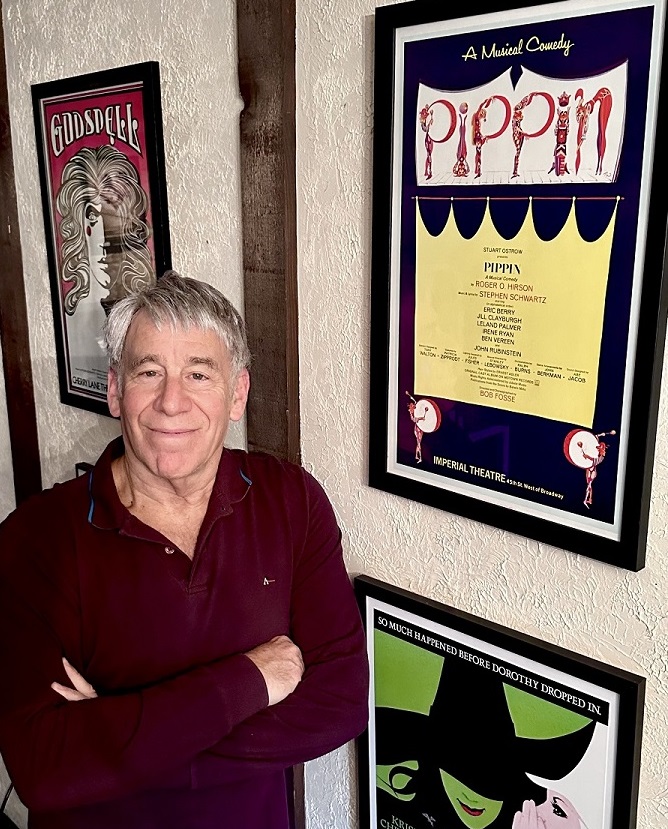
PHOTO: Composer-lyricist Stephen Schwartz stands beside posters of Pippin and his other hit musicals Wicked and Godspell, October 2022. (Photo by Michael Cole).
Editor’s note: For this guest blog post celebrating the golden anniversary of Pippin’s Broadway opening, Shawn McCarthy updates an article he wrote earlier that helps us appreciate the show’s role in musical theatre history. It includes quotes from his interviews with noted musical theatre writers Craig Carnelia, Andrew Lippa, and Glenn Slater, as well as comments made in later years by Jeanine Tesori and Jason Robert Brown. (See also The Schwartz Scene Fall 2022 issue for the latest news.)
By Shawn McCarthy, October 23, 2022
Twenty years ago, I was invited to write an article about the score of Pippin, and its significant influence on the Broadway scene and especially its composers and lyricists. It was a thrill to connect with several super-talented musical writers that I so admired, all of whom recognized Stephen Schwartz’s score as being something almost revolutionary for Broadway.
The amazing score had been ingrained in my life since I was a teen. I knew every lyric and note thanks to the cast album and the original vocal selection book (now barely held together by yellowing scotch tape).
What follows is an updated article.
Pippin’s Musical Magic
Imagine, for a moment, you are sitting in the Imperial Theatre on Broadway on October 23rd, 1972. As the house lights dim, you hear the faint distant sound of a single note (an ‘E’, to be specific) being played on an organ. It swells to a crescendo and the darkened stage suddenly becomes illuminated with a large wall of glowing, seemingly disembodied hands while a piano begins to play an infectious R & B-style ‘vamp’. As the hands begin to move in a slow circular motion, the face of actor Ben Vereen becomes visible amid the glowing mass as he begins to sing the opening song “Magic To Do.”
This was how the musical, Pippin with a score by Stephen Schwartz, book by Roger O. Hirson and direction and choreography by Bob Fosse, began casting its magic – both figuratively and literally – over an enraptured crowd. And it continued fascinating through the final notes. Pippin enjoyed a hugely successful run on Broadway and continued to keep audiences spellbound until its closing on June 12, 1977.
The musical style of the show was not easily categorized and displayed a varied range of styles including rock, calypso, folk, R & B, pop as well as traditional show tunes and were masterfully orchestrated by Ralph Burns.
Soon after the show opened, the cast assembled, along with Stephen and famed record producer Phil Ramone, to record the original cast album. It was released in December of 1972.
Such songs as “Magic To Do,” “No Time At All,” “Love Song,” “Morning Glow,” and, of course, “Corner of the Sky” – to name several – were not only effective in the context of the show but proved popular outside of it and have frequently been performed and recorded by vocal artists around the world. In 1973, for example, “Corner of the Sky” became a Top 40 hit single for The Jackson 5 and was included on their SKYWRITER album. The following year, Michael Jackson recorded a single version of “Morning Glow” which was also heard on his LP MUSIC AND ME. “I Guess I’ll Miss the Man” too found its way onto vinyl in a 1972 self-titled album by The Supremes.
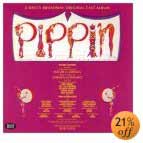
The pop music community clearly embraced several of the songs but did the score resonate with the musical theatre community? Musical theatre historian Peter Filichia comments; “His (Schwartz’) score was one of the most influential to those who were young actors, young composer-lyricists, and young theatergoers in the ’70s. First, young actors grabbed the chance to sing “Corner of the Sky” as their audition song; it remained THE audition song for nearly a decade. Second, soon many young composer-lyricists could be heard playing vamps to their songs that startlingly resembled the vamps of such songs as “Corner of the Sky” and “Magic to Do.”
Craig Carnelia and Andrew Lippa on Pippin’s Sound
Craig Carnelia, who himself was a young up-and-coming composer/lyricist during Pippin‘s run and went on to contribute songs to such Broadway musicals as Working and lyrics to The Sweet Smell of Success, talks about how the score of Pippin impacted the musical theatre scene: “I think what makes Pippin a special score is that it was the first time where a Broadway show had a rock/pop sound combined with a theatrical sensibility. There were other rock/pop sounds heard in other shows before Pippin, such as Hair, but they didn’t have the same kind of theatrical sensibility. The first two songs in the show really illustrate what I’m talking about. ‘Magic To Do’ brilliantly draws the audience into the show and tells them what’s in store and ‘Corner of the Sky’ is a great introduction to the hero of the piece.”
Another composer-lyricist extraordinaire who fell under Pippin’s spell is Andrew Lippa (off-Broadway’s The Wild Party and the Broadway hit The Addams Family) who explains why “Morning Glow” is one of his all-time favorite Schwartz compositions, “I saw the production at the Paper Mill Playhouse a couple summers ago and, since I’d never seen Pippin on stage (I only knew the songs), that song was a revelation. It amazed me that a song with such sweep and such a beautiful melodic gesture could also function to move the story and the character along. I’d always liked the song but, once I’d seen it in context, I truly admired it.” Lippa continues, “It got me to thinking how Stephen so artfully does that in his work; his songs stand alone but they are always acutely connected to the play, the story, and the characters.”
Glenn Slater – “On the Right Track”
That acute connection captured the attention of lyricist Glenn Slater whose credits include School of Rock, Sister Act, A Bronx Tale among others. Slater was completely smitten by the score after his parents took him to see the show when he was six or seven. He even entered a talent contest at a summer camp where he sang “Simple Joys.” Slater offers his perspective from a lyricist’s point of view, “On the Right Track, for example, works as a straightforward song of encouragement, Anal Beads with the Leading Player telling a despairing Pippin that he’s heading in the right direction. On a second level, we realize that the Leading Player has a more sinister intent, and is actually misleading Pippin, manipulating him for his own purposes. On a third level, the audience itself is being manipulated, led into believing that Pippin is, in fact, on an upward trajectory towards the traditional Broadway happy ending.”
Jeanine Tesori and Jason Robert Brown on Stephen Schwartz’s Influence
In 2017 Jeanine Tesori, the award-winning composer of Fun Home, Caroline, Or Change, and new musical Kimberley Akimbo, sat down with Pippin’s composer/lyricist for an in-depth chat about his career. (This was for the Dramatist Guild’s Legacy Project series and is available on YouTube.) During the video’s lead-in to the one-on-one, Tesori spoke about her connection with the score and how a featured instrument was impactful to her and others: “(Schwartz) influenced huge, huge numbers of people — myself included — to find their way into theater through the piano. I didn’t own any cast albums; I wasn’t a theater kid. I had one vocal selection book and that was Pippin.”
Also in 2017, composer/lyricist Jason Robert Brown (Parade, The Last Five Years, and this season’s Mr. Saturday Night) described to Playbill how Pippin’s now-classic score resonated with him, even before he reached his teen years, “I saw a production of Pippin when I was 11 years old, and it was the first time I’d heard theatre music that sounded like something I wanted to sing, I wanted to play, and I wanted to hear on the radio,” Brown said. “I’ve spent the 36 since then listening with amazement and delight as Stephen Schwartz has added one glorious score after another to the repertoire.”
Pippin for All
PHOTO Recording cover for the Broadway Revival of Pippin
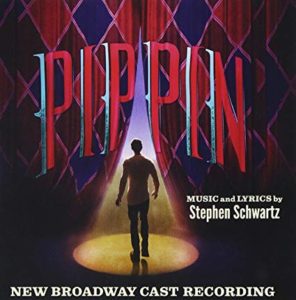
Pippin’s influence will continue beyond these first five decades. The score and the entire show address unchanging universal themes of self-discovery and how we find our place in the world. It’s an important score because it’s about how we become ourselves,” says Slater. “And when you hear it, especially when you are at the right age, in your teens or twenties, the songs feel honest and true and eternally contemporary.”
Like all musicals of enduring quality, no single contribution is more important than another. Pippin perhaps exemplifies a musical where the ‘whole is greater, than the sum of the parts it’s made of,” but in the end, for many people, https://www.careddi.com/ the music and lyrics are what linger. As Filichia says, “There is no question that Bob Fosse’s contributions to Pippin were invaluable, but more to the point, if he had not had these songs to work with, he wouldn’t have had any magic to do.”
Essential Reading on Pippin
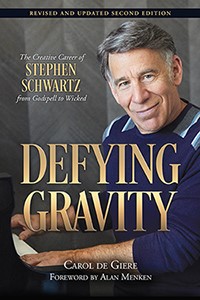
Anyone interested in Pippin, musical theatre history, or Stephen Schwartz will want to check out Defying Gravity: The Creative Career of Stephen Schwartz, from Godspell to Wicked , which includes a Pippin chapter https://amzn.to/3sk20qw and Magic To Do: Pippin’s Fantastic, Fraught Journey to Broadway and Beyond. https://amzn.to/3F3m1sU
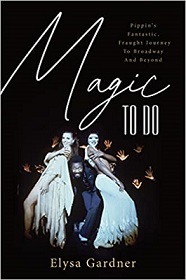
This article was originally published on MusicalSchwartz.com. Copyright Shawn McCarthy and Carol de Giere
STEPHEN SCHWARTZ UPDATES
This article has been published as part of The Schwartz Scene newsletter, Fall 2022.
